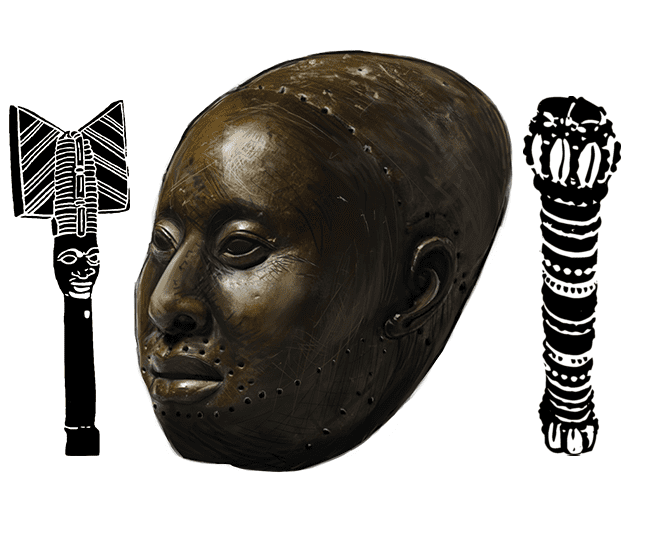Ìwàpẹ̀lẹ́ Living
The ethical code of conduct for members of Ifá University and the Òrìṣà Ìṣẹ̀ṣe Assembly.
Preamble
At Ifá University and the Òrìṣà Spiritual Assembly for Ìṣẹ̀ṣe Faith and Practices, we seek an environment in which we interact and learn from one another in ways that protect personal freedoms and community standards. For our communities to prosper we embrace the Sacred Odù of Ifá Scriptures.
The Ìwàpẹ̀lẹ́ code of conduct holds us accountable for our words and actions, and guides us in resolving conflicts by engaging each other in dialogue.
The Ìwàpẹ̀lẹ́ Pledge
The Basis of Ìwàpẹ̀lẹ́
Our adherence to this written expression of our shared values establishes an open environment of learning and growing through personal and community responsibility. We uphold the Code by engaging with the values upon which our community depends: honesty, truth, mutual trust, concern, and respect for oneself, one another, and the community.
These values form the basis of the Ìwàpẹ̀lẹ́ Code. They improve our community only if we incorporate them into our daily lives.

Responsibilities
Our social relationships are based on mutual trust, concern, and respect. We shall consider how our words and actions, regardless of the medium, may affect the sense of acceptance essential to an individual’s or group’s participation in the community. We shall foster an environment that genuinely encourages respectful expression of differing values in honest and open discussion.
We recognize that acts of discrimination and harassment, including, but not limited to, acts of racism, sexism, homophobia, transphobia, classism, ableism, discrimination based on religion or political ideology, and discrimination based on national origin or English capability are devoid of respect and therefore, by definition, violate this Code. Upon encountering actions or values that we find degrading to ourselves and to others, we should initiate dialogue with the goal of increasing mutual understanding.
Each member is responsible for their proper conduct and integrity in all of your activities.

Community Standards
We are obligated to reflect on our own actions as well as the actions of those around us in light of their effect on the community and confront others when their conduct disturbs us. We must also report our own breaches to the Ìwàpẹ̀lẹ́ Council if it becomes clear through self-reflection or through expressions of concern by others that our academic or social conduct represents a violation of community standards.
We are obligated to report ourselves even if doing so may result in a trial and the possibility of separation from the University.
The Ìwàpẹ̀lẹ́ Council
The Ìwàpẹ̀lẹ́ Council’s task is to manage the administrative aspects of the Ìwàpẹ̀lẹ́ Code and to help resolve difficult situations and apparent violations of the community’s trust. Ìwàpẹ̀lẹ́ Council is charged with interpreting the sections of the Code that leave room for flexibility. It is, for example, Ìwàpẹ̀lẹ́ Council’s responsibility to decide if a situation warrants the convening of a trial or if it can be resolved through other means of dialogue and restoration.
Although Ìwàpẹ̀lẹ́ Council trials are not intended as punitive proceedings, there are repercussions for violating the Code. The goals of Ìwàpẹ̀lẹ́ Council proceedings are threefold: to hold any individual, who violated the Code accountable, to educate the individuals involved, and to restore individuals who violated the Code to the Ifá University community. Such proceedings should also take into account the needs of the community.

Consensus
The Ifá University and Òrìṣà Ìṣẹ̀ṣe communities recognize consensus as a valuable decision-making tool. For this reason, all decisions made by Ìwàpẹ̀lẹ́ Council, including those approving Council publications, are made by consensus. This method depends on reaching unity, requiring patience and open-mindedness.magna aliqua.
Confidentiality
Ìwàpẹ̀lẹ́ Council cases will be kept in the strictest confidence. This allows individuals in the community to bring issues to Ìwàpẹ̀lẹ́ Council without fear of attaching a public stigma to parties involved. However, Ìwàpẹ̀lẹ́ Council must balance this need for confidentiality with the community’s right to be informed. One way of maintaining this balance is through pseudonymized abstracts of trial proceedings
Jurisdiction
The Ìwàpẹ̀lẹ́ Code applies to every aspect of activities at Ifá University and the Òrìṣà Ìṣẹ̀ṣe Assembly. All members are obligated to adhere to the Code and are under its jurisdiction.
Our communities includes: members, priests, priestesses, faculty, staff, and administration.
All members of our community shall work within the spirit of the Code.
